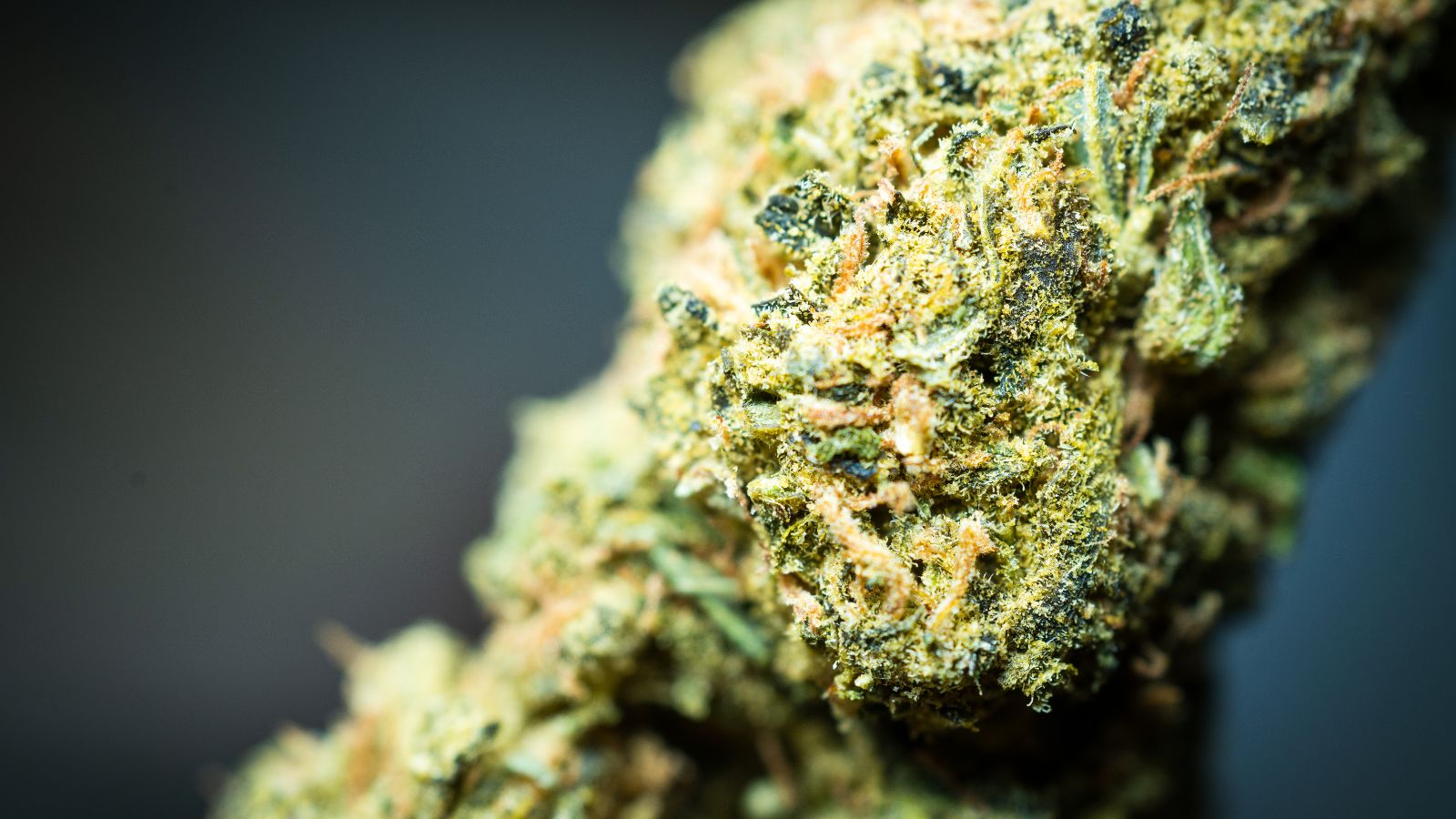Curious about a natural approach to mental wellness?
Did you know that 1 in 8 people worldwide experience mental disorders? It’s true! With so many people suffering, it’s no surprise that different ways to use THC-a (or THCa) is quickly gaining popularity as a potential therapy.
In this article, we’ll dig into how THCa may help with mental health and the different methods to use it.
Here’s what you’ll find:
- What Is THCa and How Does It Work?
- The Mental Health Crisis: Why We Need Better Solutions
- THCa’s Potential Mental Health Benefits
- The Different Ways to Use THCa
What Is THCa and How Does It Work?
THCa is the raw, non-psychoactive version of THC that you can find in the cannabis plant. This simply means it’s the non-activated form of the compound that has yet to be heated (aka decarboxylated) into THC.
Here’s why that matters:
When you consume cannabis that has been properly heated and prepared (aka cured), the psychoactive THC compound produces its well-known “high.” However, because THCa remains in its non-activated form, it does not produce this effect.
Some of the most popular ways to use THCa include raw or expertly grown THCa flower, tinctures, capsules, and edibles.
Now, you may be wondering how THCa can work if you’re not getting high from it. While we need more research on this area, we do know that THCa has a much larger molecular structure. This allows it to pass through our bodies without having the same effect on the cannabinoid receptors as THC does. This property is why it does not cause the “high” that many are used to from marijuana products.
Think of THCa as the cousin of THC that has the potential to help your body function without the mind-altering effects that you might not want.
Cool, right?
The Mental Health Crisis: Why We Need Better Solutions
Mental health disorders are more common than you might think. Anxiety disorders have affected 19.1% of adults in the United States in the past year alone. Over 21 million adults in the United States are living with depression.
The reality is:
Conventional treatments do not work for everyone. Some people develop unwanted side effects from medications, and others are just unresponsive.
This is why different ways to use THCa is a potential alternative or complementary solution for many people.
THCa’s Potential Mental Health Benefits
Research on THCa and its benefits for mental health is still in its early days. However, the preliminary research that we have so far is pretty promising.
Here’s the lowdown so far:
Anti-Inflammatory Properties
THCa has been found to have anti-inflammatory properties which is huge because it’s starting to be linked with depression and anxiety disorders.
Neuroprotective Effects
THCa may have neuroprotective properties, meaning it can help shield your brain cells from damage. This could also help preserve cognitive function and neural pathways essential to mood regulation.
Stress Response Modulation
THCa may help modulate stress responses via its interaction with our bodies’ endocannabinoid systems. This is exciting news for people with anxiety disorders or chronic stress!
The best part?
You get these benefits without having to experience psychoactive side effects that can happen with other cannabis products.
The Different Ways to Use THCa

The good news is that there are a variety of different ways to consume and use THCa that all have their own benefits.
Here are some of the most popular methods:
THCa Flower
THCa flower from a reputable source that’s been expertly grown is the most natural way to consume the raw, non-psychoactive form of the compound. You can add the raw flowers to your smoothie or juice, in a salad, or make your own tinctures at home.
With a little research and right equipment, you can have your own little setup to cultivate plants safely and responsibly. Treasure State cannabis enthusiasts are often asking can you grow weed in Montana and how to ensure they comply with local regulations while maintaining quality growth conditions. Understanding the state’s cultivation laws helps individuals avoid legal issues and grow within the allowed limits. For many, this process becomes a rewarding hobby that offers both relaxation and self-sufficiency.
THCa Tinctures
Tinctures have the benefit of offering precise dosing and rapid absorption when you take it sublingually (under your tongue). They are convenient and easy to dose while also offering a consistent and measurable dose with a quick onset of potential effects.
THCa Capsules
Capsules offer the most convenient and simple way to take THCa every day. The benefits of capsules are that they offer pre-measured doses that require no taste or preparation time.
THCa Edibles
THCa edibles like gummies and chocolates make consumption easy and fun while still offering potential benefits.
Just keep in mind that edibles can take much longer to kick in than other forms.
One important thing to note:
Start small and increase your doses as you get used to it. The endocannabinoid system is different for each person, and something that works for one person may not be the best approach for you.
What the Research Shows
Although THCa research is still ongoing, the early studies we have show promise for mental health applications.
THCa has been tested in animal studies and has shown to reduce proteins associated with neurodegenerative diseases, enhance cognitive function, have anxiety-reducing effects, and aid in better sleep patterns.
The truth is:
We need more human trials before we can fully understand THCa’s potential as a therapeutic agent for mental health. But the early research is promising and could indicate a great addition to holistic mental wellness strategies.
Safety Considerations and Legal Status
Important information to consider:
THCa is federally legal under the 2018 Farm Bill as long as the cannabis plant used contains less than 0.3% Delta-9 THC. But since state laws can differ, always be sure to check local regulations.
THCa also seems to be well-tolerated by most people with very few side effects. Side effects that some people may experience can include mild digestive upset, potential skin irritation for sensitive skin types, and interactions with certain medications.
Always talk to a healthcare provider before adding THCa to your mental health routine, especially if you’re on any other medications.
Combinining THCa with Other Mental Health Strategies
The important thing to keep in mind is that different ways to use THCa should always be one part of your overall approach. This means that the most effective method is to combine it with other proven mental health strategies such as regular exercise, good nutrition, getting enough sleep, therapy if needed, and social support.
THCa should be considered one of the tools in your mental wellness toolkit, not the entire toolbox itself.
What to Expect When Starting THCa
As you start to use THCa for mental health support, it’s important to have realistic expectations.
The truth is:
Most people do not start using something like this and suddenly see their lives transformed. What you may notice are small but important changes to your sleep quality, stress response, mood stability, and mental clarity.
Some people even report feeling “more balanced” after using THCa.
Finding Quality THCa Products
As with anything related to your health, you want to be sure that you’re using the highest-quality products possible.
When it comes to choosing the right THCa product to support your mental health, look for 3rd party lab testing, clear labeling with accurate THCa content, reputable manufacturers, and products made from organically grown hemp or cannabis.
Keep in mind:
Quality matters when it comes to your health, so be willing to pay more for products from reputable sources, rather than making a decision based purely on the lowest price.
Wrapping It Up
THCa is an exciting new area in the natural mental health support space. With so many people affected by anxiety, depression, and other mental health disorders, any additional tools in the toolbox are worth considering.
The different ways to use THCa offer variety and options for people who are looking for an alternative or complementary solution to traditional mental health treatments. Whether you prefer tinctures, capsules, or raw flower preparations, there’s probably a method that will work well with your lifestyle.
The bottom line:
We need more research before we know for sure what the benefits are and how they can be used to support our mental health. But from what we know so far, THCa has a lot of potential as part of an overall holistic wellness strategy. Just be sure to start slowly, consult your doctor first, and view different ways to use THCa as just one part of your toolbox, not the whole toolbox by itself.
If you’re struggling with mental health problems, it’s important to seek out all the resources you can, including the potential benefits that THCa may offer.

